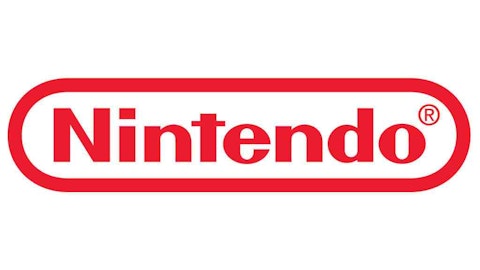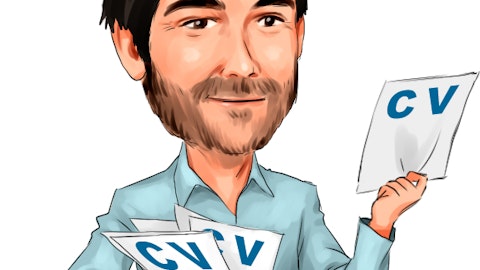Immediately following Zynga Inc (NASDAQ:ZNGA)’s announcement that it wouldn’t pursue an online gambling license in the U.S., the app developer’s stocks plummeted. The creator of the app sensation FarmVille had announced plans to develop gambling apps for both the U.S. and U.K. markets, but the U.S. has tight restrictions on online gambling which makes implementation an uphill battle for the company.
Officially, Zynga Inc (NASDAQ:ZNGA) is only saying that it would prefer to focus on the U.K. market for now, launching in a market where online gambling is legal. Games will have names like ZyngaPlus Poker and ZyngaPlus Casino.

Social gambling
U.K. social media users can currently access Zynga Inc (NASDAQ:ZNGA) gambling games through Facebook Inc (NASDAQ:FB), providing a social component to gambling not yet seen in the U.S. Online gaming apps have proven very popular overseas, giving app makers like Zynga a chance to monetize their creations.
Zynga Inc (NASDAQ:ZNGA) was once the darling of the social media gaming world, proving addictive to social media users who logged in each day to nurture virtual farms in cooperation with other players. But FarmVille’s heyday appears to have come and gone, as Zynga Inc (NASDAQ:ZNGA) revealed that it had lost nearly half of its users in its most recent quarter.
While revenue was down 31% compared to the same quarter in 2012, Zynga emphasized in its earnings announcement that the future is bright for the company. As Zynga Inc (NASDAQ:ZNGA) promised to go “back to basics,” investors dropped the company’s valuation by approximately $400 million. The company has high hopes for its new game, Running with Friends, but to date, FarmVille is still Zynga’s biggest success.
Checking Out the Competition
Top Zynga competitor Electronic Arts Inc. (NASDAQ:EA) has also found a way to use Facebook to lure in players and keep them. Unlike Zynga, Electronic Arts Inc. (NASDAQ:EA) has a long history in the gaming business. The company was a pioneer in home gaming in the early 80s. Today, Electronic Arts Inc. (NASDAQ:EA) follows Nintendo Co., Ltd (ADR) (OTCMKTS:NTDOY) and Activision Blizzard, Inc. (NASDAQ:ATVI) as the third-largest gaming company by revenue.
Digital media is a huge source of revenue for the company. The company enjoyed a 30% growth in digital revenue thanks to popular mobile games like Real Racing 3 and The Simpsons: Tapped Out. Social gambling could make Electronic Arts Inc. (NASDAQ:EA) a serious competitor on Facebook Inc (NASDAQ:FB), revolutionizing social gaming in the same way it revolutionized home gaming decades earlier. It would also be a natural transition for Electronic Arts Inc. (NASDAQ:EA) , who already has stake in social casino games like Lucky Gems Casino Slots. The company also has an established relationship with the popular “World Series of Poker” TV series. In fact, a gambling partnership between the two might be the next logical move for both parties.
It might be the right time for the developer. The company lost $121 million in its most recent quarter, a loss equal to $0.40 per share. Total revenue was down $6 million, with adjusted revenue up $4 million. For the full year, Electronic Arts Inc. (NASDAQ:EA) expects a loss of $0.98 per share, up from the $0.97 it predicted previously. Since the company’s digital strategy is currently its saving grace, it will likely continue to recognize its consumers’ gravitation toward mobile gaming.
Facebook wins
Unlike Google Play, which prohibits gambling apps, Zynga’s move in the U.K. made it clear that Facebook Inc (NASDAQ:FB) was willing to consider them. In the U.S., the social media giant has much to gain from accepting mobile apps into its store.
Although Facebook Inc (NASDAQ:FB) had a stellar second quarter, app install advertisements are a huge source of revenue for the company. An app install ad displays on a user’s newsfeed to encourage downloads. If gambling apps move forward, Facebook Inc (NASDAQ:FB) may benefit from the competition for consumer dollars.
Revenue for the social media site was up a full 53% to $1.81 billion, thanks largely to its increasing use of mobile ads. Revenue from these ads represented nearly half of all of the site’s advertising revenue for the quarter, a result of the company finally working out flaws in its ads as daily active usership continuing to climb. Analysts called it the best quarter the company has had since going public.
The average street estimate for 2013 is $0.57 per share, with Wall Street predicting $0.78 per share in 2014. A move toward online gambling could further cement its mobile advertising revenue stream, giving the company consistent earnings year after year.
While regulatory hurdles in America make mobile gambling difficult for developers, experts are predicting those restrictions may weaken. In fact, California, Nevada, and New Jersey are all considering altering their restrictions. Look for Zynga to eventually team up with Facebook Inc (NASDAQ:FB) to launch gambling apps as these restrictions change; even if the company chooses to keep gambling overseas, however, U.S. shareholders will benefit from their success.
Stephanie Faris has no position in any stocks mentioned. The Motley Fool recommends Facebook. The Motley Fool owns shares of Facebook. Stephanie is a member of The Motley Fool Blog Network — entries represent the personal opinion of the blogger and are not formally edited.
The article How Online Gambling Could Save These Companies originally appeared on Fool.com is written by Stephanie Faris.
Copyright © 1995 – 2013 The Motley Fool, LLC. All rights reserved. The Motley Fool has a disclosure policy.




